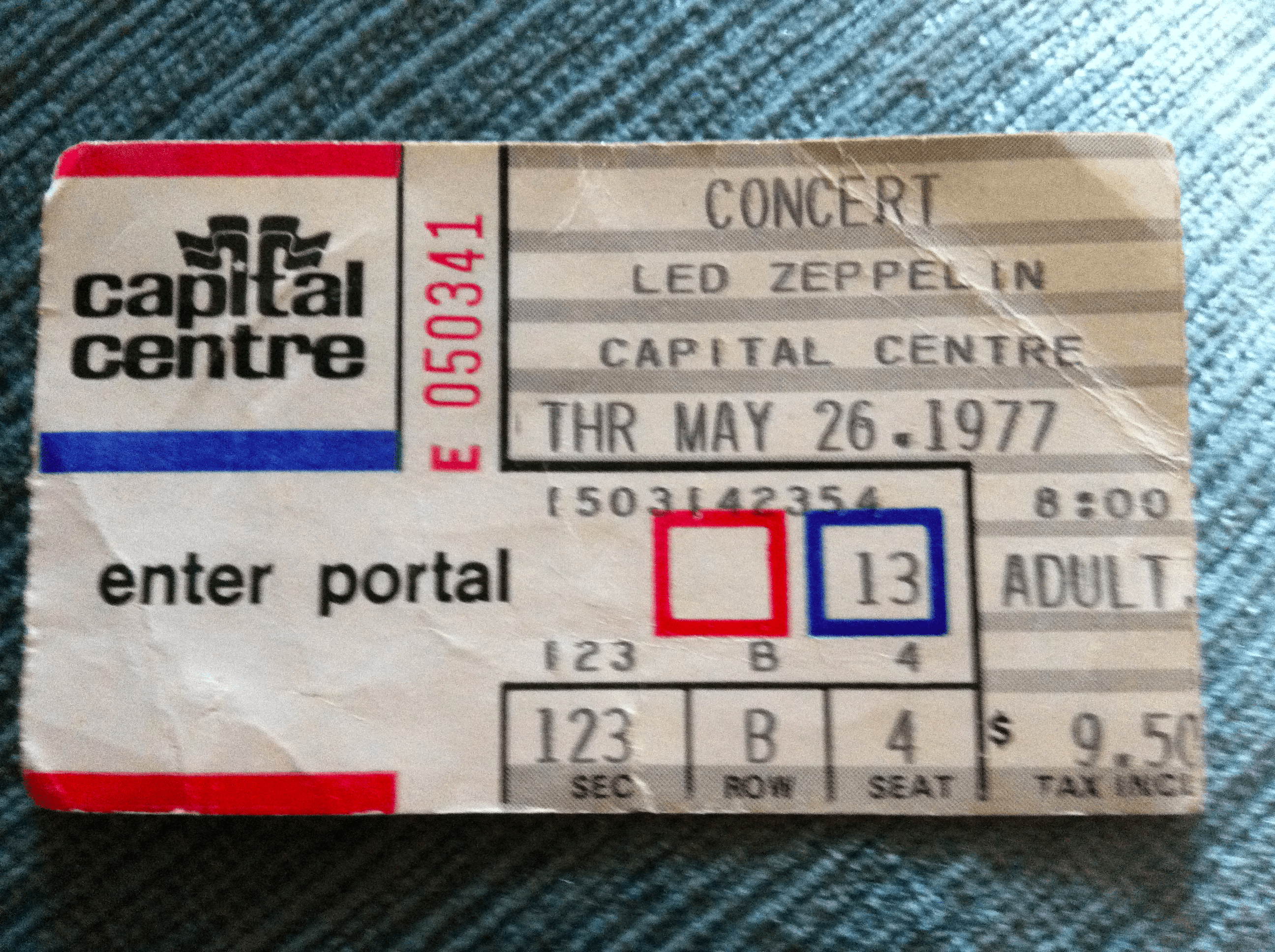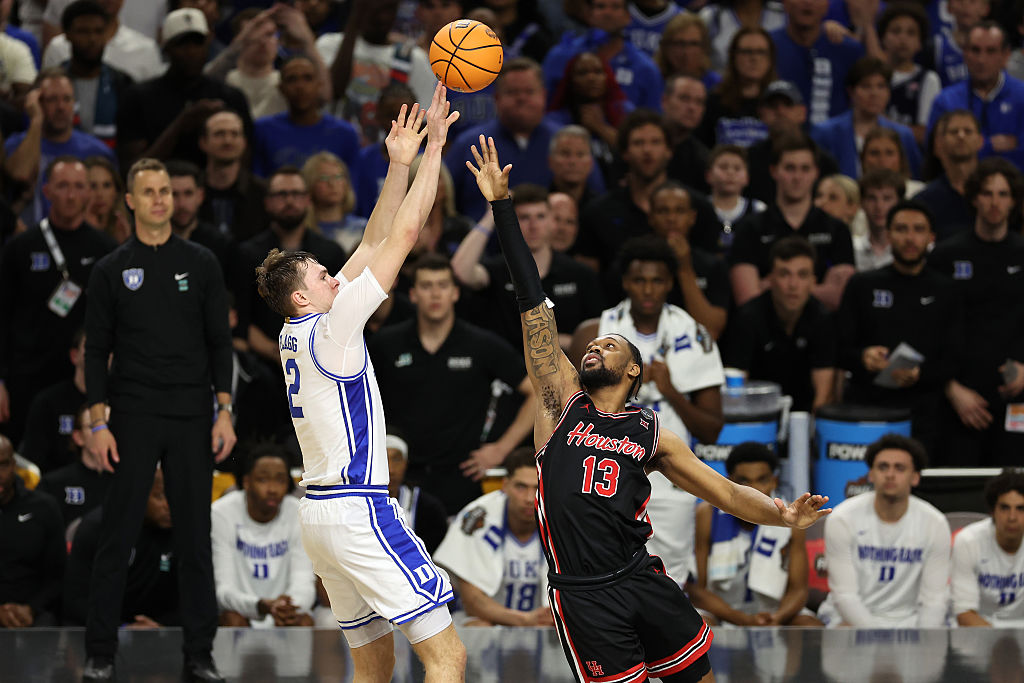Goliath only loses in the Bible.
That thought occurred to me, again, this week, as the Supreme Court declined to hear an appeal of a lower court’s dismissal of the so-called "Stairway to Heaven" lawsuit, ending what was among the most-watched plagiarism cases in rock history and handing the win to the defendants, Led Zeppelin. After more than six years of litigation, and nearly half a century after the song was written, it’s over.
Whatever my feelings about the hard rock gods (see ticket stub of the 1977 show I attended) or thoughts about the merits of the case, my main takeaway from the news was that I was surprised how long it took for the behemoth band to dispatch the relatively teensy plaintiffs, all of whom associated with the largely forgotten rock combo Spirit and its founder and frontman, Randy California. He was the guy who wrote “Taurus,” the song with a few bars in the beginning that sound a whole lot like the opening of Stairway. But the final verdict is that whatever copycatting occurred was not illegal. (Here’s a side-by-side presentation of the intros to the songs at issue. It’s too late to change anything, but you make the call: Theft or no?)
Being a lifelong worshiper of Zeppelin and respectful appreciator of California, I got a copy of the court documents when I heard about the high court’s edict. And reading over the original witnesses list, filed in 2014 in the U.S. District Court for the Central District of California, a few names caught my eye: Jimmy Page, Robert Plant, John Paul Jones, Dave McKenna ...
Um ... "Dave McKenna?" Like, me, Dave McKenna? The filings said this guy (with an “Address Unknown") was the “Author of Article re: Randy Wolfe.”
Ah. Yeah, that’s me. Wolfe was Randy California’s real surname, and I did indeed write a story long ago about Wolfe, who died while saving his son from drowning in 1997. My story noted the similarity between Wolfe’s arpeggio from Taurus, which was recorded in 1967, and Stairway’s, which came out four years later. California's mother, Bernice Pearl, told me that Zeppelin's opus was the "greatest rock and roll makeout song ever," and that it was thieved from her Jewish son.
"Led Zeppelin lifted that from Randy," she said.
But, apart from getting me named in a lawsuit of a band I totally worshiped as a wide-eyed teen—a tale which everybody I meet at least until the pandemic ends will have to hear—the most intriguing thing about that Spirit story is that the article had already been involved in another intellectual property lawsuit of the David vs. Goliath variety. That one ended with the Big Guy winning out, also.
I wrote the piece about Randy California in 2004 for a then-new outfit called the Jewish Rock and Roll Hall of Fame. The group was founded by some wiseacre geniuses I know with a plan to develop a website for people to write nice things about rockers of the Jewish faith and maybe out some guitar-slinging Hebrews whose religious roots were closeted or underacknowledged. (Handsome Dick Manitoba? Malcolm McLaren? Beck? Who knew?) The JRnRHOF’s main raison d’etre was to have a few giggles.
The founders, however, weren’t counting on just how unfunny the annoying folks at the real Rock and Roll Hall of Fame would find their venture. The Cleveland-based clowns filed a lawsuit even before the new website had been launched. And the suit did indeed bring massive coverage.
The Rock and Roll Hall of Fame claimed that the new group had already caused “irreparable harm.” Regan Fay, a lawyer for the Hall, told the Los Angeles Times that the project would “confuse” rock fans to an illegal degree.
“It is a well-known trademark principle that putting your name in front of another name is a trademark infringement, like you can’t call something a Jewish McDonald’s because then people would think it is McDonald’s that is kosher.”
Fay also insinuated there was no role that the new group could fill that needed filling. “We have a lot of Jewish rock and rollers in the Hall of Fame,” he said.
Jeffrey Goldberg, a JRnRHOF founder and then the Washington correspondent for the New Yorker, told the Los Angeles Times, “Speaking as a layman, I don’t think they own rock and roll and I don’t think they own the phrase ‘Hall of Fame’ and I know for sure they don’t own the Jews.”
All contentions in the lawsuit now seem, well, patently ridiculous, particularly when considering they were made before there even was a JRnRHOF website that anybody could visit.
The good guys got out on the cheap simply by agreeing to drop the name before the case got close to a courtroom. The founders quickly came up with other names to keep the nemesis at bay, including “Challah Fame” and “Shul of Rock,” and eventually launched a site, Jewsrock.org. Lots of stories about Jewish rockers were posted. The site also featured an online quiz ("Jew or Not?") and a photo gallery of tattoos of Jewish musicians who broke the unwritten rule and got inked up.
But the damage was done. The lawsuit drained the energy of the founders, and with minimal updates to the content on the site, interest in the venture from web surfers fizzled shortly after the launch. All links to the site are now dead.
But now, with Stairway suit’s highly publicized denouement, I was reminded of the Challah Fame’s brief heyday, before the giggling stopped.
I called Francis Malofiy, the lead attorney for the plaintiffs, to ask what his side could have wanted from me, the writer with the unknown address, had I been less obscure and unfindable. He said his memory of the original filings was foggy, given how long it’s been since he first put me on the witness list, but assumed that his side would have wanted me to confirm the accuracy of the quotes in my Randy California story, which according to the filing was “produced in discovery,” and ask if I knew anybody or any “statements that Randy had made” that might add to the record and help his case. I told Malofiy that everything interesting that I knew about Stairway vs. Taurus was likely in the Challah Fame story. I then made the mistake of joking that if only he’d found me in time I would have said under oath the "Stairway" riff was stolen to help him out.
Malofiy, who is known for letting his feelings be known—Philadelphia magazine said he “may be the most hated man in the Philadelphia legal community”—erupted in a humorous rant full of (I think) fake rage about how the massive, years-long case would have turned out differently, if he’d had this information sooner.
“Real nice of you to call and say you would have been there for us!” he said. “That’s great. A day after the Supreme Court says they’re not gonna hear it, I hear from you? Thanks a lot, motherfucker!”
How rock and roll is that?






